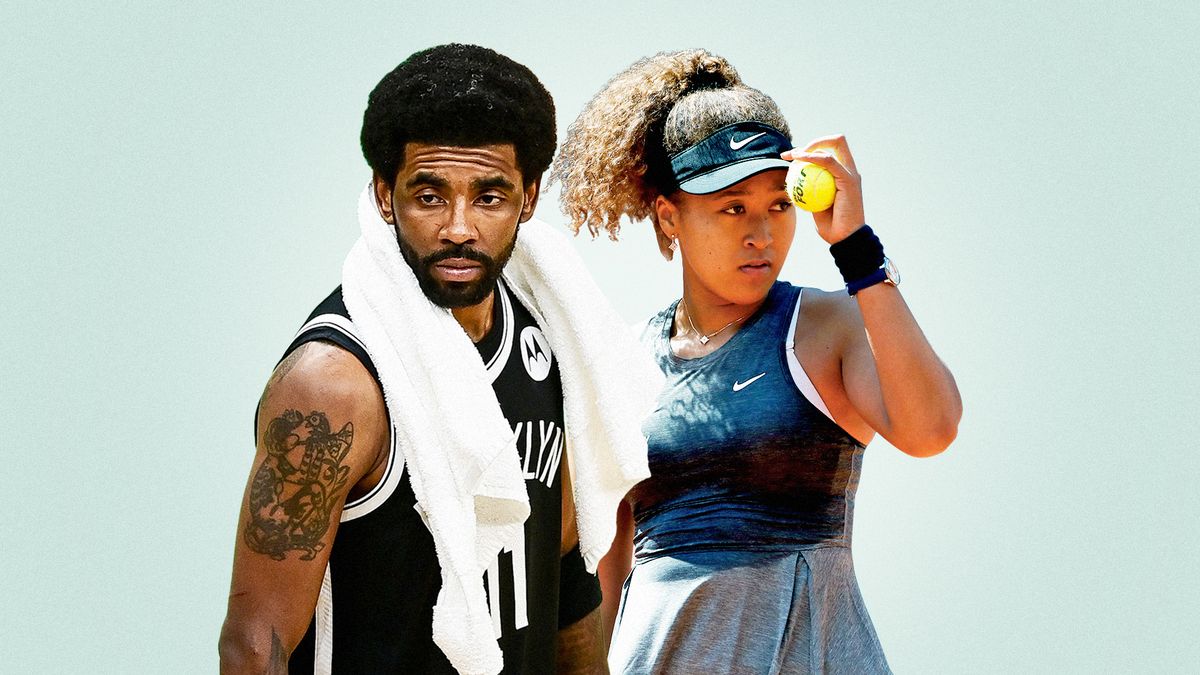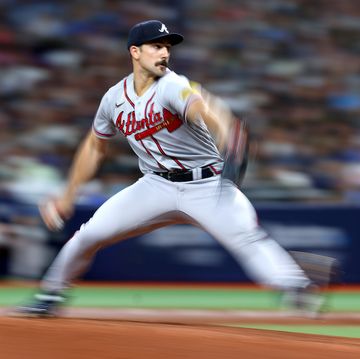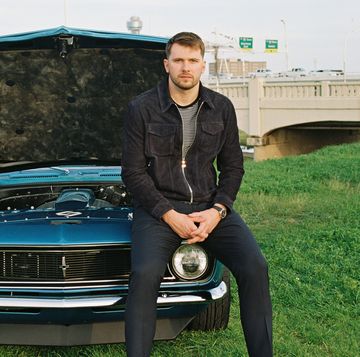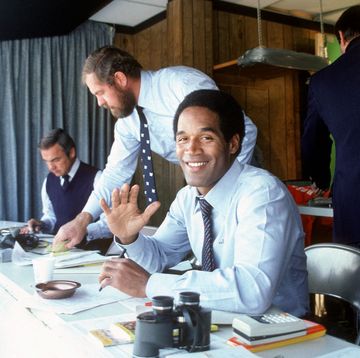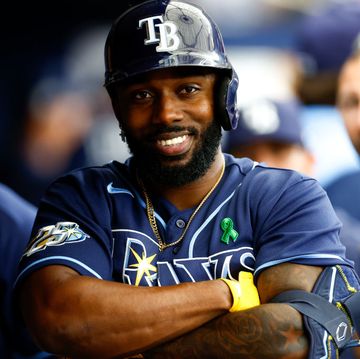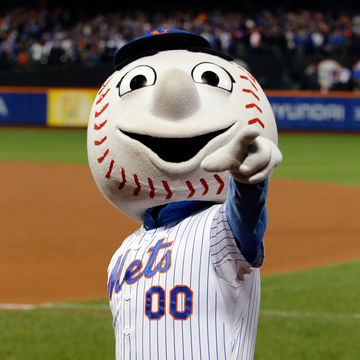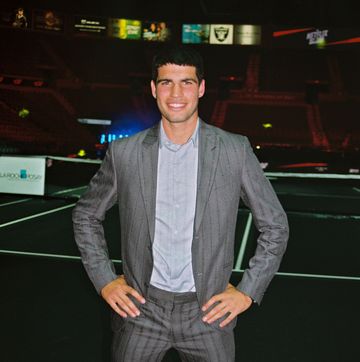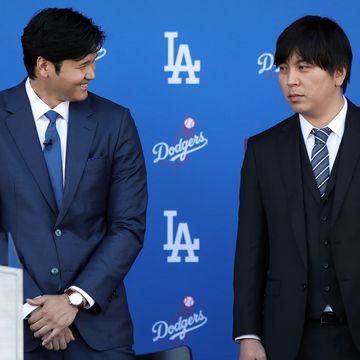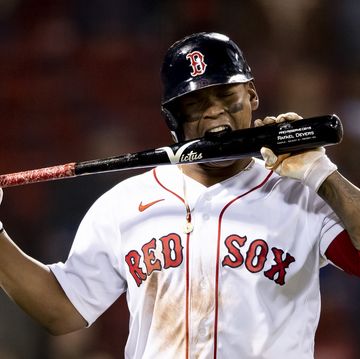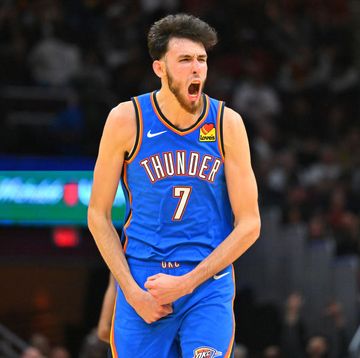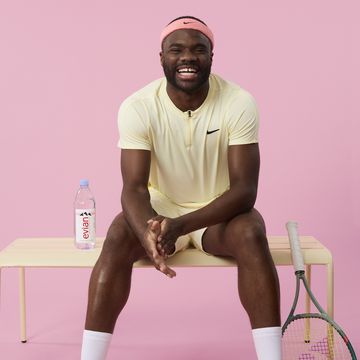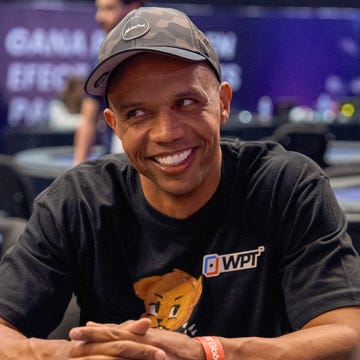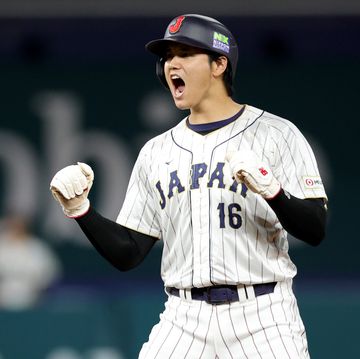Anyone remember when Kevin Love first opened up about his struggles with mental health? Back in 2018, he was one of the first NBA players to sit down and talk specifically about, you know, how it was a little bit stressful playing in today's all-eyes-no-privacy league, saying he had a panic attack in the middle of a 2017 game. He'd later write about his bouts with depression in an essay for The Player's Tribune. Love wrote, "If it hadn't been for a couple of my closest friends, I don't know if I would be here today telling my story."
For a while, it felt like he was the hero in the league. Demi Lovato and Matthew McConaughey gave him the Arthur Ashe Courage Award. It was great. A win for everyone who's ever felt anxiety they were afraid to speak up about. Cut to April 2021. In a fit of frustration (that he's since apologized for), he smacked an inbounds pass back to the opposing team, which promptly made a bucket. All of the sudden? Unprofessional, inexcusable, immature. Love went from model of courage to entitled asshole in the span of a couple years.
That's all to say: Love was one of the first people I thought of during the media storm of the two controversial (which... really shouldn't be controversial) sports stories this weekend. One saw Brooklyn Nets guard Kyrie Irving—who missed multiple games this season partially due to "family and personal stuff," as he explained through tears in a January Zoom call—nearly pelted with a water bottle by a Boston Celtics fan. Then, we watched the sad end of tennis star Naomi Osaka's time at the French Open. After announcing that she wouldn't do any press at the tournament due to mental health concerns and a wish to avoid insensitive questions from the media, the French Tennis Federation fined Osaka $15,000. She promptly removed herself from the tournament, writing in a message posted to Twitter on Monday afternoon: "The truth is that I have suffered long bouts of depression since the US Open in 2018 and I have had a really hard time coping with that. Anyone that knows me knows that I’m introverted, and anyone that has seen me at tournaments will notice that I’m often wearing headphones as that helps dull my social anxiety."
Seems like sports media and fans have gone back to their old ways since they all shipped out their tweets championing Kevin Love a couple years ago. They're losing sympathy for today's athletes—which is totally wrong. A Deadspin piece slammed Osaka and backed sports journalists, writing, "Her boycott of the media at the French Open is misguided. Worse, it’s downright unprofessional." And there's Piers Morgan, who, in a column for the Daily Mail, called Osaka's withdrawal a "frankly contemptible attempt to avoid legitimate media scrutiny by weaponizing mental health to justify her boycott." As for Irving? People focused on deriding him for stomping on the Celtics logo postgame, instead of looking at what Irving said after the game: “It’s unfortunate that sports has come to a lot of this kind of crossroads where you’re seeing a lot of old ways come up. It’s been that way in history in terms of entertainment and performers and sports for a long period of time, and just underlying racism and just treating people like they’re in a human zoo, throwing stuff at people, saying things." You'd think it would go without saying, but here we are, ripping athletes having the courage to speak out about their mental health issues. Sure, athletes absolutely should be spending time with the media. But when that same media is ripping them to shreds over personal issues they know nothing about, and fans are literally throwing shit at their heads, do you think we could excuse them from a postgame presser or two?
We can do better than columns attacking our biggest and best sports stars for simply saying that they're not OK. In our new lives—with new rules, a new everything, and scars that will never go away—we have to do better than that. When anyone says they're struggling–whether it be an athlete, a celebrity, or that friend you haven't talked to–you need to listen to them. But for today's purposes, know that in today's world of social media and clicks, a guy like Kyrie Irving is about a thousand times more susceptible to bouts of anxiety than, say, Larry Bird. He's a Black man who just finished a stint playing in the same city that called Bill Russell every racist slur you could imagine. And you have fans saying that he skipped games so he could party on his birthday. It's almost like we've learned nothing from Delonte West suffering so much with bipolar disorder that Mark Cuban legitimately had to pick him up from the side of the road and check him into rehab.
Irving is right—there's a racial aspect to all of this, too. It's no coincidence that Kevin Love was praised for opening up about his struggles in the first place. Now, you have Irving and Osaka both expressing (either through protest or outright declaring it) how much they're reeling from George Floyd's death, and we're still seeing headlines like, "Kyrie Irving's Excuse on Why He Missed Thursday's Game: 'I Just Didn't Want to Play'"?
Of course, something, eventually, will have to be worked out here between athletes and the journalists who are paid to follow their every move, then ask them about their every move. Osaka can't avoid the media for the rest of her career, even admitting that she could've communicated better than she did this past weekend. But the media can't openly call bullshit on her mental health problems either. Former tennis star and current ESPN analyst Rennae Stubbs said it best in a New York Times writeup on the weekend's saga:
I think Naomi has always struggled with public speaking and dealing with the press has always made her anxious and so it’s finally come to a head. You cannot allow a player to have an unfair advantage by not doing post-match press. It’s time consuming, so if one player is not doing that and others are, that is not equal. But after this, it’s time to really take a hard, long look at all of it.
On last thought: back when I was in school, my newspaper sent me to cover the last football game of the season. I'd never covered a football game before—this was 2016—Pitt vs. Syracuse. The final score was a basketball score: Pitt won, 61 to 76. Thinking of how I'd recap what felt like an IRL video game, I packed myself into the press room at Heinz Field (where the Pittsburgh Steelers play, too) with what felt like every sweaty beat reporter in the city. I'll never get this image out of my head: all of these dudes in collared shirts damn near stuck to future NFL running back James Conner, jamming phones in his face and shouting questions over each other. It was Conner's last game at Heinz Field, the place where he returned from a much-publicized cancer diagnosis to play again. The guy was clearly feeling a lot. It looked like he was about to cry. Could hardly give any coherent answers. Keep in mind: I was green as hell then, wondering if/how/when I should join the mosh pit. I didn't. But I remember thinking: There's not a better way to do this... than this? The media should've absolutely heard from Conner that day, sure. But I wish he had that moment for himself. I'm sure he did, too.
